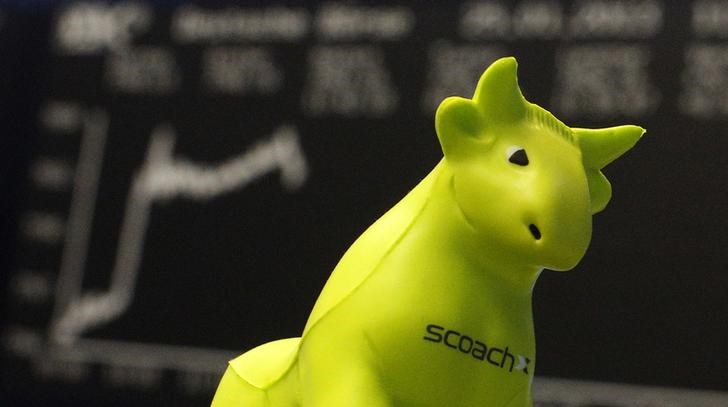By Peter Nurse
Investing.com -- European stock markets edged higher Monday, in calm trading after the volatility generated last week by a strong U.S. jobs report and the European Central Bank’s hawkish turn.
By 4 AM ET (0900 GMT), the DAX in Germany traded 0.4% higher, the CAC 40 in France climbed 0.3% and the U.K.’s FTSE 100 rose 0.4%.
Investors have started the new week in a contemplative mood, as they digest Friday’s strong U.S. payrolls report as well the potential for rising interest rates on both sides of the Atlantic.
The increase of 467,000 jobs in Friday’s nonfarm payrolls, as well as over 700,000 in revisions from the previous two months, means markets are now pricing in a one-in-three chance that the Fed lifts interest rates by a hefty 50 basis points in March.
Back in Europe, Klaas Knot, the Dutch central bank president and a member of the ECB's Governing Council, said on Sunday that he expects the ECB to raise interest rates in the fourth quarter of this year, following on from President Christine Lagarde noting increased concern over inflation levels after Thursday’s meeting.
Adding to the uncertainty is the crisis on the Ukrainian border, with White House national security adviser Jake Sullivan warning on Sunday that Russian President Vladimir Putin could order an attack within days or weeks, as diplomatic efforts to find a way out of the situation continue with French President Emmanuel Macron heading to Moscow.
Elsewhere, German industrial production dipped in December, falling by 0.3% on the month, as supply chain bottlenecks and a drop in construction hampered Europe's largest economy.
The earnings season continues this week but is relatively quiet Monday. Aurubis (DE:NAFG) stock rose 3.1% after Europe’s largest copper producer recorded a rise of about 85% in quarterly profits as high metal prices boosted results.
Reckitt Benckiser (LON:RKT) stock rose 0.7% after Bloomberg News reported that the consumer goods giant was considering the sale of its baby-food business.
Oil prices weakened Monday, consolidating after surging to the highest levels since 2014 at the end of last week, recording its seventh consecutive weekly gain.
Oil has soared this year as the global economy has recovered from the Covid pandemic but supply has struggled to keep up with this improving demand, putting $100 a barrel within reach. Increased geopolitical tensions surrounding Russia’s intentions for Ukraine have also added a risk premium to the price.
By 4 AM ET, U.S. crude futures traded 1.1% lower at $91.26 a barrel, while the Brent contract fell 0.7% to $92.65.
Additionally, gold futures rose 0.3% to $1,812.85/oz, while EUR/USD traded 0.2% lower at 1.1430.
